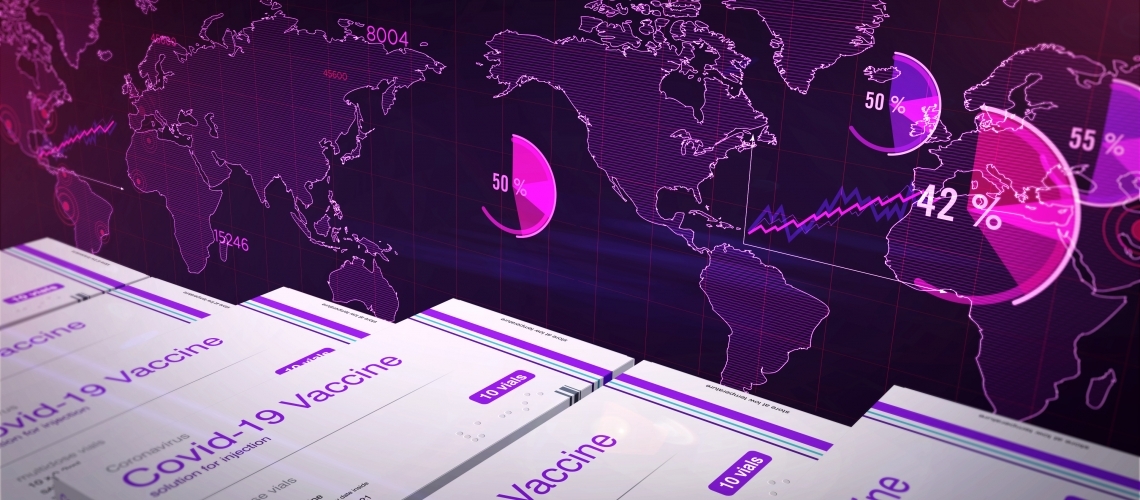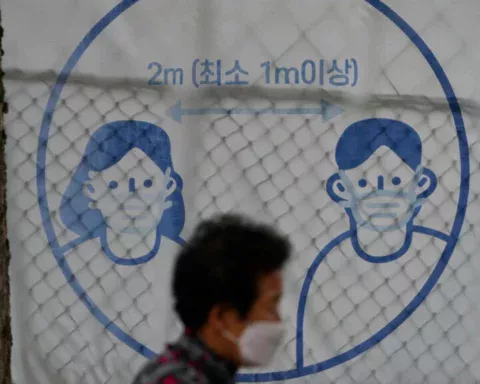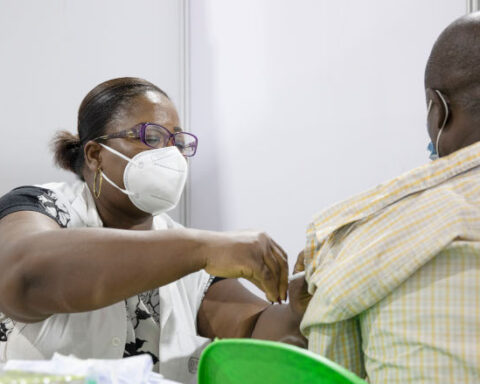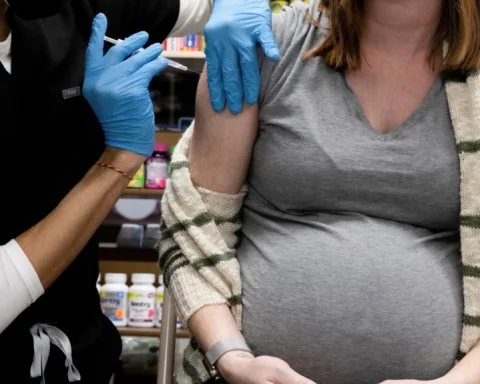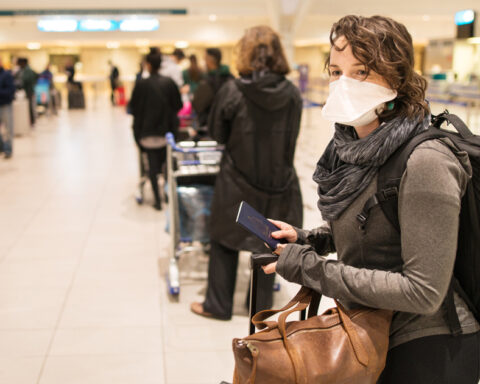Widespread access to COVID-19 vaccines is critical for development. The world is currently faced with heavy COVID-19 caseloads, high death rates, and related reversals in development. Vaccinations appear to be the best single development investment available. Access is achievable, but urgent action is needed.
Last week, the Multilateral Leaders Task Force on COVID-19 issued our fourth joint statement, bringing together the efforts of WTO Director-General Ngozi Okonjo-Iweala, IMF Managing Director Kristalina Georgieva, WHO Director-General Tedros Adhanom Ghebreyesus, myself and our four organizations. Together, we urged for greater progress on delivery of vaccinations in developing countries, especially in Africa, and advocated specific actions by governments and vaccine manufacturers.
The Task Force tracks and monitors gaps in financing, production, delivery, trade, supply chain, and deployment on a country-level to support faster and more targeted solutions. Our data, publicly available on the Task Force website, shows that billions of vaccine doses will be produced in the remainder of 2021 alone, providing hope that the vaccination gaps could be reduced materially if we act now.
By current estimates, developing countries need nearly 2 billion more doses to achieve the interim target of vaccinating 40% of their population by end-2021, nearly 4 billion more doses to vaccinate 60% of their population by mid-2022, and almost 5 billion more doses to vaccinate 70% of their population by this time next year. These dose requirements could increase depending on how the delta variant evolves, as we are already seeing in Africa.
Addressing the problem of vaccine supply can save millions more lives, but this will only be possible with the cooperation of advanced economies that have pre-purchased surplus doses, countries that are producing vaccines, and vaccine manufacturers.
In our recent meeting with manufacturers, we recognized and commended the ingenuity of vaccine inventors and developers and their efforts to manufacture in massive quantities. We also asked them to share details on any scheduled vaccine shipments and deliveries so that countries can prepare for deployment.
The Task Force has advocated actions in eight areas to accelerate delivery of vaccines to developing countries.
First, countries that have excess doses can support the global effort by i) swapping their near-term delivery schedules, ii) releasing excess doses from contracts and options, and iii) fulfilling their donation pledges. In this context, the African Vaccine Acquisition Trust (AVAT) has urgent demand for more single-shot doses throughout the remainder of 2021. The Task Force advocated that countries with high vaccination rates should switch places in line, accepting a later delivery date so that vaccines could be delivered to people in developing countries in the short term instead. We were very pleased to see the EU announcement that it will return millions of J&J doses to Africa. We also commend the recent announcement by the U.S. that it will purchase hundreds of millions of doses to donate to the world. Our Task Force data shows that the needle is beginning to move forward on the delivery of donated doses: the share of pledged doses that have been delivered to developing countries increased to 12% from 10% a month ago. Still, hundreds of millions more donated doses need to be delivered.
Second, vaccine companies need to prioritize and fulfill their contracts to COVAX and AVAT. They should also share details on month-by-month delivery schedules for all vaccine shipments, especially for COVAX and AVAT, so that doses can be directed, in a transparent manner, to countries that need them the most, particularly low- and lower middle-income countries.
Third, we recognize that vaccine manufacturers need greater demand certainty. To this end, the Task Force has called on governments to urgently clarify their prioritization strategies and decisions on the usage and dosage of boosters, since those will have significant implications for the availability of additional doses for developing countries. Altogether, further certainty and predictability in demand is needed to enable the production and delivery of the required doses. Pooling demand can help create more certainty, predictability, and cost advantages for purchasers.
Fourth, countries must urgently reduce their export restrictions, high tariffs and customs bottlenecks on COVID-19 vaccines and on the raw materials and supplies required for the production and timely distribution of vaccines.
Fifth, regulatory streamlining and harmonization is needed. Regulatory authorities around the world should create regulatory consistency and standardization on the approval of vaccines.
Sixth, we have called on donors to address financing gaps. The World Bank has $20 billion in vaccine financing available through end-2022 for immediate use by countries to procure vaccines and address deployment gaps. We are also supporting countries to access other COVID-19 health tools, such as testing kits, oxygen, PPE, with $7.5 billion of financing to date. This is an important area of focus for the Task Force going forward.
Seventh, countries must have the necessary deployment capacity. Through vaccine financing operations, the World Bank is already assisting 54 countries not only with procurement but also, with closing country-level deployment gaps – including expanding storage and cold chain capacity, training health workers, building trust in immunizations through citizen and community engagement, and strengthening data and tracking systems for vaccine distribution. At the same time, better information on delivery schedules, particularly for donated doses, is key to ensuring that countries can prepare for deployment. Last week, the Ethiopian authorities, for example, had to decline dose donations because they hadn’t been given sufficient advance notice to prepare, and the vaccines being allocated to them had a short expiry date. A similar situation occurred in the DRC two weeks ago.
Eighth, efforts need to be made to boost production of vaccines, diagnostics, and treatments globally to expedite equitable delivery of lifesaving tools to developing countries. Aside from country vaccine financing and health systems support, the World Bank Group, working through the International Finance Corporation, is also supporting efforts to strengthen manufacturing capacity and skills in developing countries. We see early progress in South Africa, Rwanda, and Senegal. We are building on this experience to ramp up a more diversified manufacturing capacity, with support from IFC’s $4 billion Global Health Platform.
It is urgent to act now to accelerate the supply and delivery of vaccines for all developing countries so that we can end this global pandemic.

